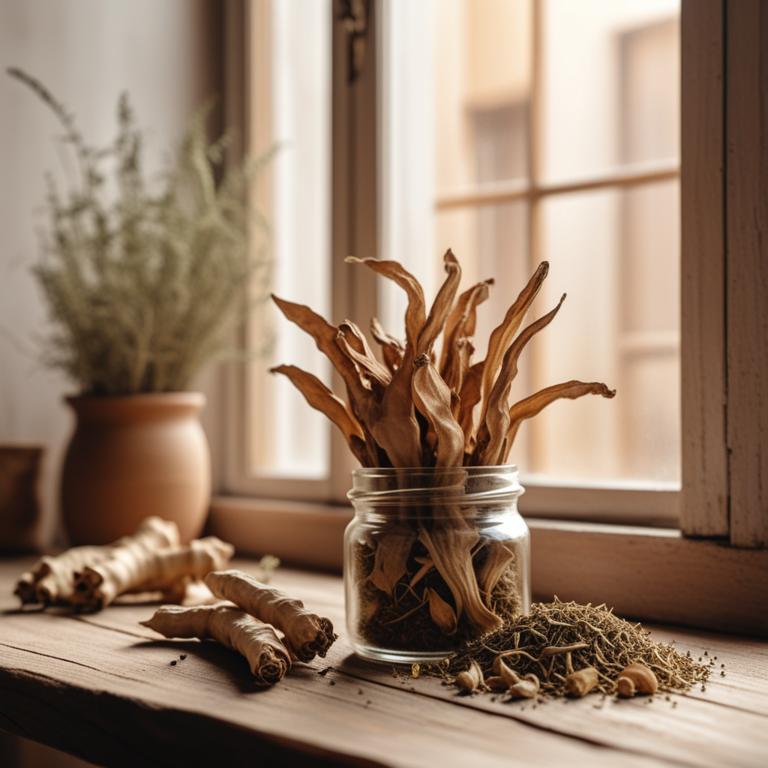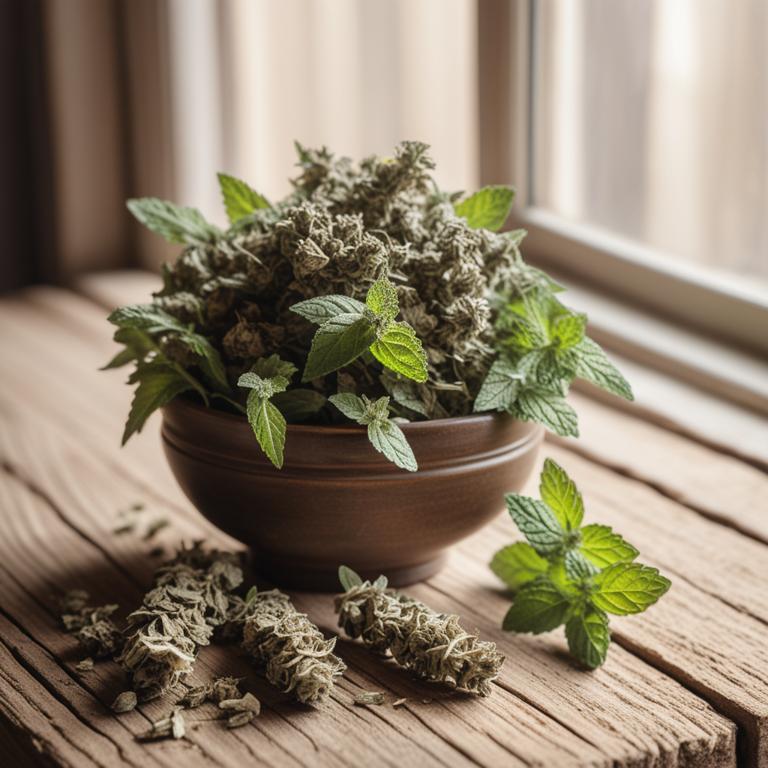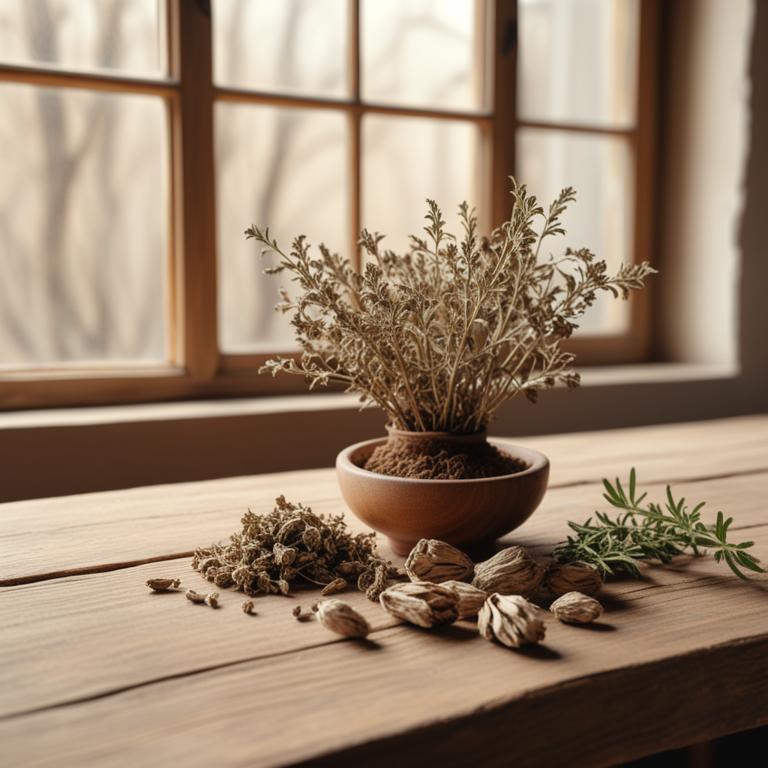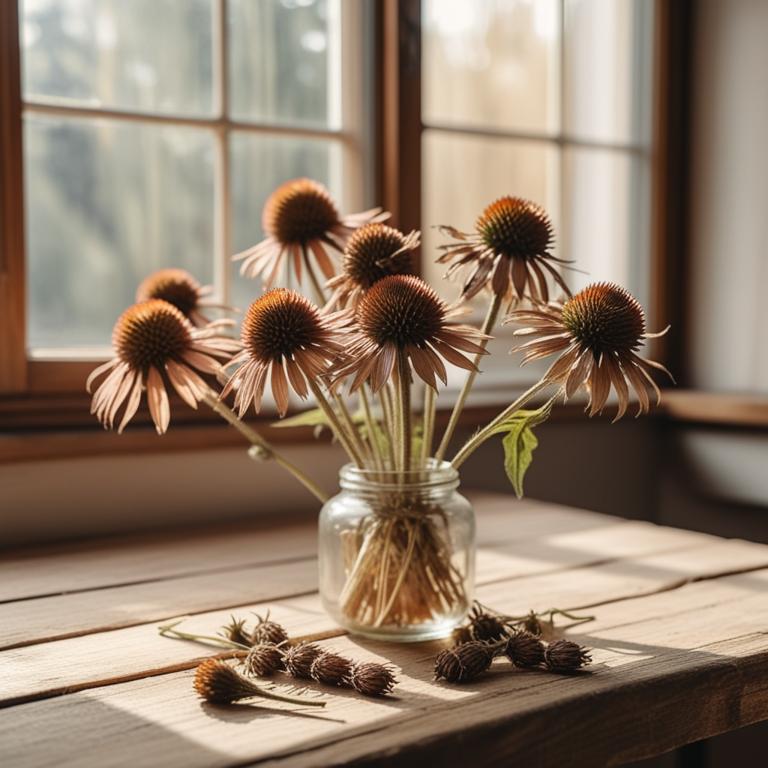Updated: Dec 1, 2024
Hay Fever: Causes, Herbal Preparations, and Medicinal Herbs for Relief
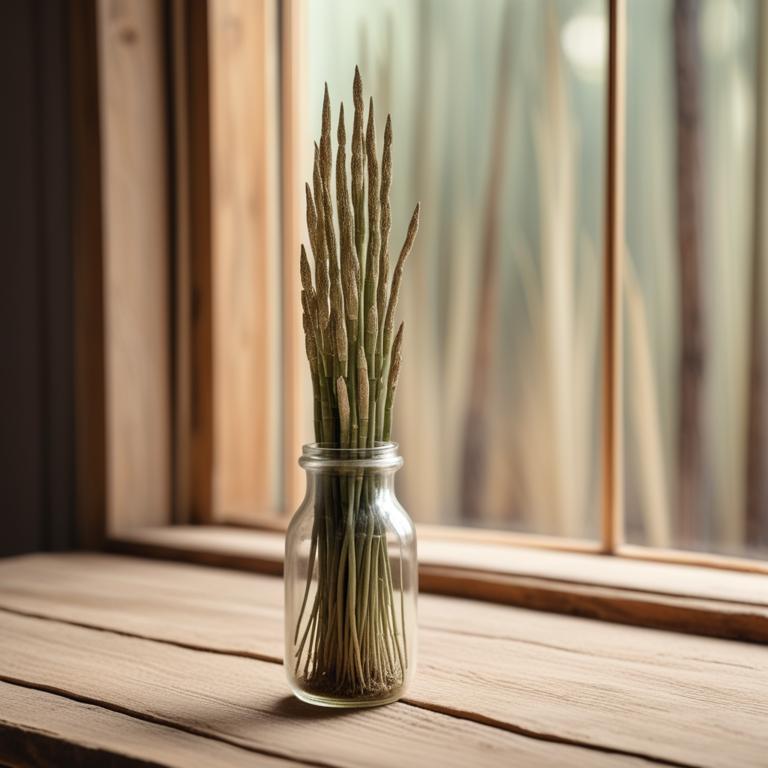
Hay fever, also known as allergic rhinitis, is a common condition where your body overreacts to tiny particles in the air, such as pollen, dust, and mold.
It causes symptoms like sneezing, congestion, itchy eyes, and a runny nose. For many people, hay fever can be a nuisance that affects their daily life, making it hard to enjoy outdoor activities, sleep, and even concentrate at work. The main culprit behind hay fever is the release of histamine, a chemical in your body that triggers an allergic reaction. When pollen from trees, grass, or weeds enters your body, it's mistaken for a threat, and your immune system goes into overdrive, releasing histamine and causing symptoms. Fortunately, there are some herbs that may help alleviate hay fever symptoms.
Herbs like nettle, quercetin-rich herbs like oak and elder, and butterbur have anti-inflammatory properties that can help soothe your nasal passages and eyes. These herbs can also help reduce histamine production, making them a natural way to combat hay fever. You can use these herbs in various forms to help manage your symptoms. Herbal teas, like nettle tea or butterbur tea, are a gentle way to reap the benefits. You can also take supplements or capsules made from these herbs.
Some people also find relief by using topical creams or ointments that contain these herbs.
Table of Contents
- What are the underlying reasons for the development of hay fever?
- What benefits do herbs offer as a natural remedy for hay fever?
- What are the key medicinal herbs for managing hay fever?
- What herbal preparations do people typically use to combat hay fever?
- Which herbs are not recommended for people with hay fever?
- FAQ
What are the underlying reasons for the development of hay fever?
The main causes of hay fever are specific plants that release tiny particles into the air when they bloom, triggering an allergic reaction in people with sensitivities.
One of the most common culprits is Timothy Grass, a type of grass found in fields and meadows, its pollen is a major allergen because it's very fine and can travel long distances through the air. Ragweed, a weed that grows in dry areas and along roadsides, is another common allergen, its pollen is highly potent and can cause severe reactions in some people.
Barnyard Grass, a type of grass often found in fields and pastures, also produces pollen that can cause hay fever. Queensland Grass and Russian Thistle, although less common, can also trigger allergic reactions in sensitive individuals.
These plants release pollen into the air, which is then inhaled by people with allergies, causing symptoms such as sneezing, runny nose, and itchy eyes.
What benefits do herbs offer as a natural remedy for hay fever?
Using herbs for hay fever can be a great way to manage your symptoms.
One of the main benefits is that they can help to reduce inflammation in your nose and sinuses, which is often the cause of congestion and stuffiness. Herbs can also help to thin out mucus, making it easier to breathe and making you feel more comfortable.
Some herbs can even help to calm down allergic reactions, reducing the amount of histamine in your body and the resulting itching, sneezing, and runny nose. By taking herbs regularly, you may find that you experience fewer symptoms and can enjoy the outdoors more without feeling miserable.
Additionally, herbs can be a natural and gentle way to manage hay fever, without the side effects that some medications can cause.
What are the key medicinal herbs for managing hay fever?
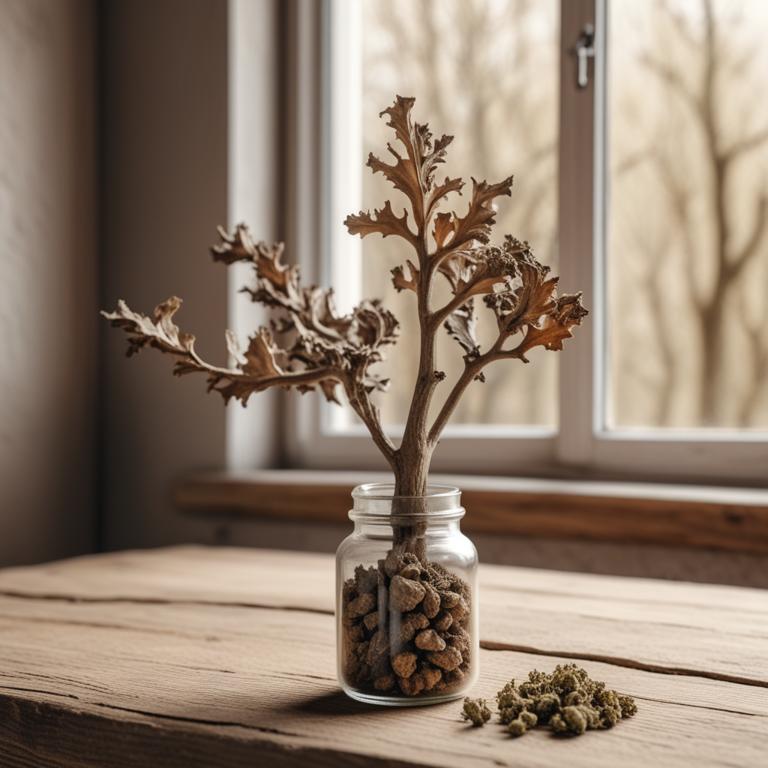
If you're one of the millions of people who suffer from hay fever, you're probably looking for ways to ease the symptoms.
Herbs can be a great help, and here are some of the most effective ones. Quercus robur, also known as English oak, is a natural antihistamine. When you take it, it blocks the histamine in your body that causes allergy symptoms like itching and sneezing. Echinacea purpurea is another herb that helps boost your immune system. It's like a shield that keeps the bad guys - like pollen - from getting to you.
Nasturtium officinale, also known as garden cress, has anti-inflammatory properties. It reduces swelling and redness in your nose and eyes, making it harder to feel like you're having an allergic reaction. Artemisia absinthium, also known as wormwood, has been used for centuries to calm down the body's response to allergens. It's like a gentle soother that helps your body relax when it's reacting to pollen. And finally, Eucalyptus globulus is a natural decongestant. It clears out the mucus in your nose and sinuses, making it easier to breathe when you're congested.
These herbs work together to help you feel better when you're suffering from hay fever.
What herbal preparations do people typically use to combat hay fever?
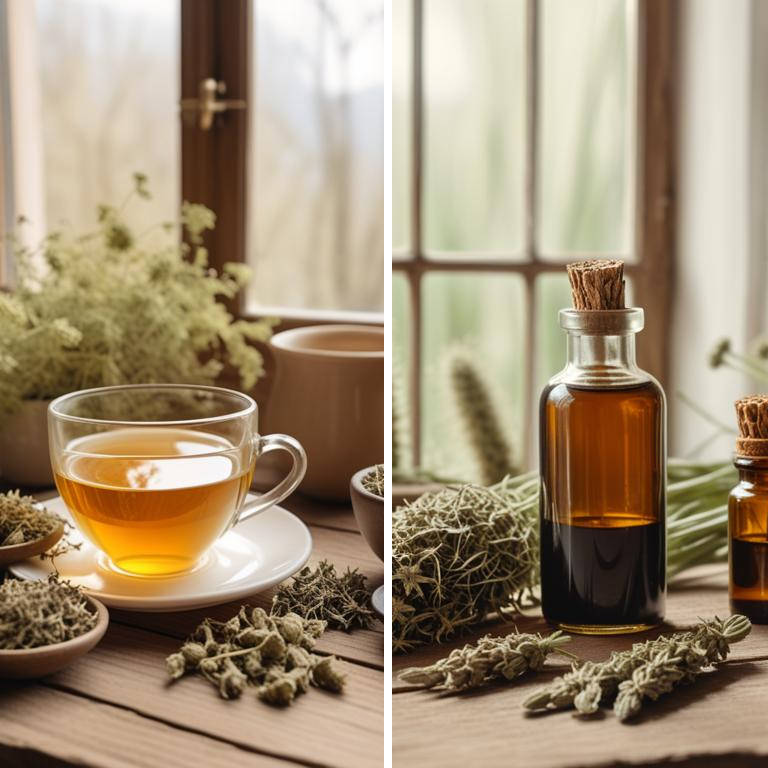
Hay fever can be a real nuisance, with itchy eyes, runny nose, and constant sneezing.
But there are some herbal preparations that can help alleviate these symptoms. One option is to take capsules of herbs like quercetin and nettles, which are natural antihistamines that can help block the release of histamine, the chemical responsible for hay fever symptoms. Drinking herbal tea, especially peppermint and eucalyptus, can also provide relief. These herbs have natural decongestant properties that can help clear up congestion and ease breathing.
Decoction, a liquid extract made by boiling herbs in water, is another effective preparation. You can make a decoction by boiling herbs like ginger and licorice root to create a soothing drink that can help reduce inflammation and calm the nasal passages. Herbal tinctures, a concentrated liquid extract of herbs, are also helpful. You can put a few drops of tinctures made from herbs like eyebright and goldenseal into a glass of water or juice to create a drink that can help reduce inflammation and fight off infections. Lastly, infusions, or herbal teas, like chamomile and lemon balm, can help calm the body and mind, reducing stress and anxiety that often come with hay fever.
By drinking these teas, you can promote relaxation and reduce your body's allergic response.
Additional Resources:
Which herbs are not recommended for people with hay fever?
If you have hay fever, it's a good idea to steer clear of Ambrosia artemisiifolia, also known as common ragweed.
This plant releases a huge amount of tiny pollen particles into the air, which can cause your hay fever symptoms to flare up. Sambucus nigra, or black elder, is another plant that can exacerbate hay fever. While its flowers are beautiful and often used in crafts, they produce a lot of pollen that can trigger allergic reactions. When the wind blows, it can spread this pollen far and wide, making life miserable for people with hay fever. Plantago lanceolata, or ribwort plantain, is often found growing in fields and meadows. Unfortunately, it's also a common allergen, releasing pollen into the air that can set off hay fever symptoms.
You might see it growing in areas with other plants that are also problematic for people with allergies. Tanacetum parthenium, or feverfew, is sometimes used to treat headaches and other health issues. However, its flowers contain a lot of pollen, which can be a problem for people with hay fever. If you have this condition, you should avoid touching or disturbing feverfew plants, as this can release more pollen into the air. Finally, Taraxacum officinale, or dandelion, is another plant that can trigger hay fever symptoms. Its yellow flowers are often seen blowing in the wind, releasing their pollen far and wide.
This can cause problems for people who have allergies, especially if they're outdoors when the wind is blowing.
FAQ
Are there any specific herbs that can prevent hay fever?
Some herbs like butterbur and nettle root may help reduce symptoms of hay fever.
They have anti-inflammatory properties that can ease congestion and itching.
Butterbur, in particular, has been studied for its ability to block the body's production of histamine, a chemical that triggers allergic reactions.
Is it safe to use herbal remedies for hay fever during pregnancy?
When using herbal remedies for hay fever during pregnancy, it's essential to be cautious.
Some herbs, like peppermint and chamomile, are usually safe. However, others, such as sage and feverfew, may not be.
More research is needed on their effects during pregnancy, and it's best to talk to your body about how it reacts to them.
Are there any herbs that can reduce the frequency of hay fever?
Some herbs like quercetin-rich willow bark, stinging nettle, and butterbur have been found to help reduce the frequency and severity of hay fever symptoms.
These herbs may inhibit the release of histamine, a chemical that triggers allergic reactions.
They might also have anti-inflammatory properties that calm the nasal passages and sinuses.
Can i combine different herbal remedies for hay fever?
You can combine different herbal remedies for hay fever, but do it carefully.
Some herbs can interact with each other or make symptoms worse. For example, if you take nettle and peppermint together, the peppermint might reduce the nettle's effectiveness.
Start with small amounts and see how your body reacts before mixing different remedies.
Related Articles
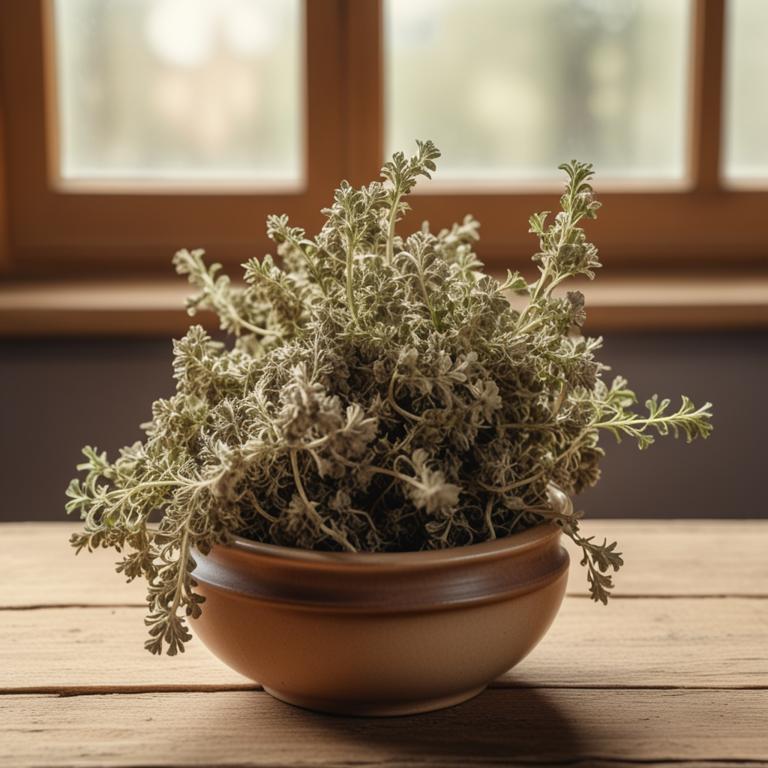
The Complete Guide to Acute Bronchitis: Causes, Medicinal Herbs, and Herbal Preparations
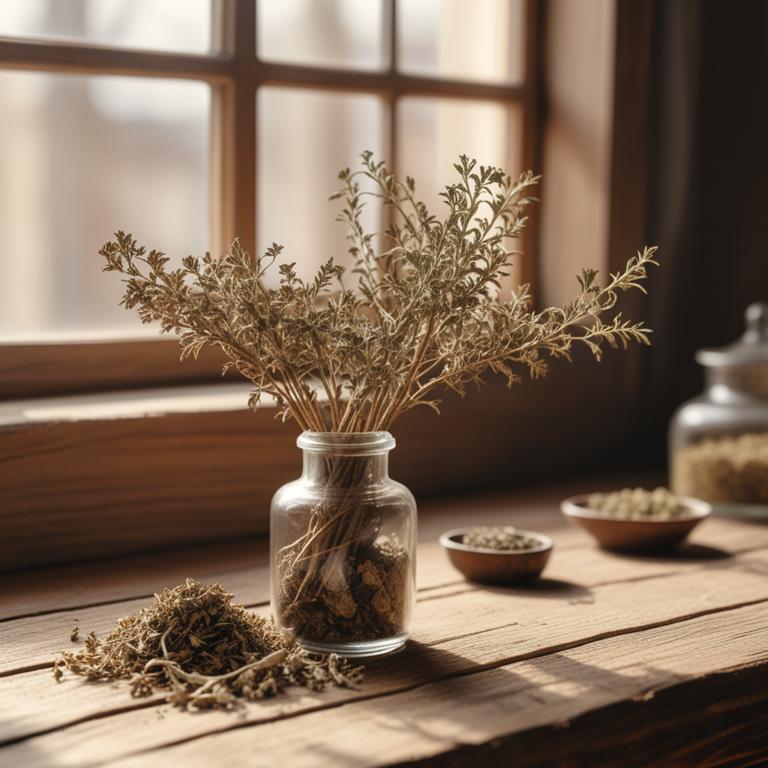
Bronchitis: The Causes, Medicinal Herbs, and Homeopathic Preparations
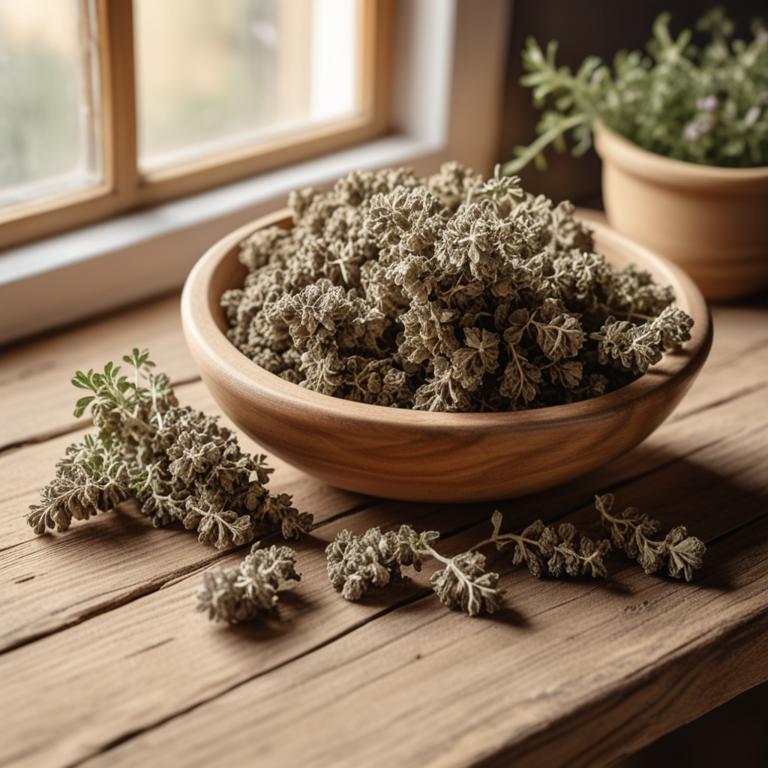
Phlegm: Causes, Herbs, and Medicinal Preparations for Relief
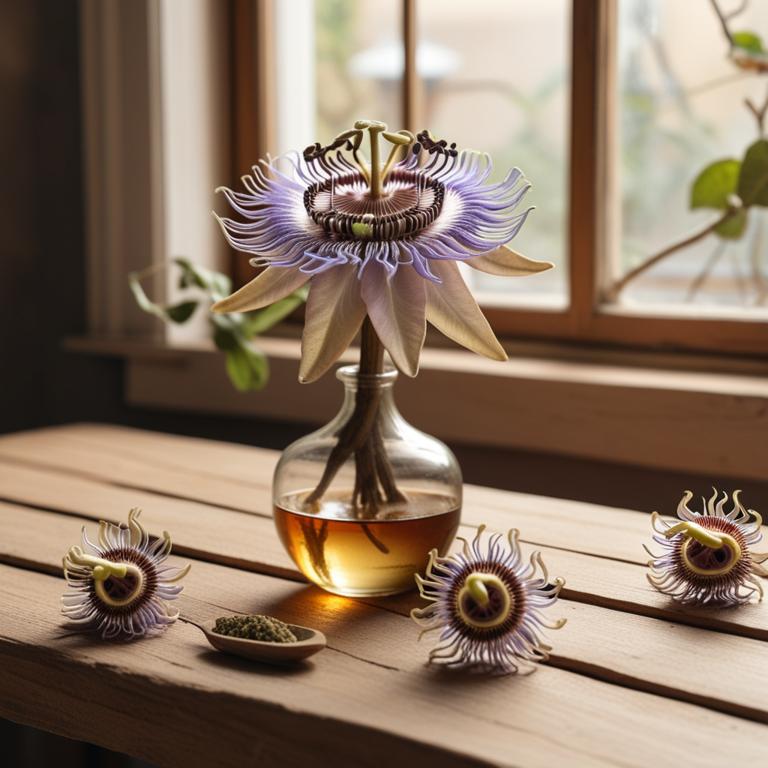
Snoring: Causes, Herbal Remedies, and a Good Night's Sleep
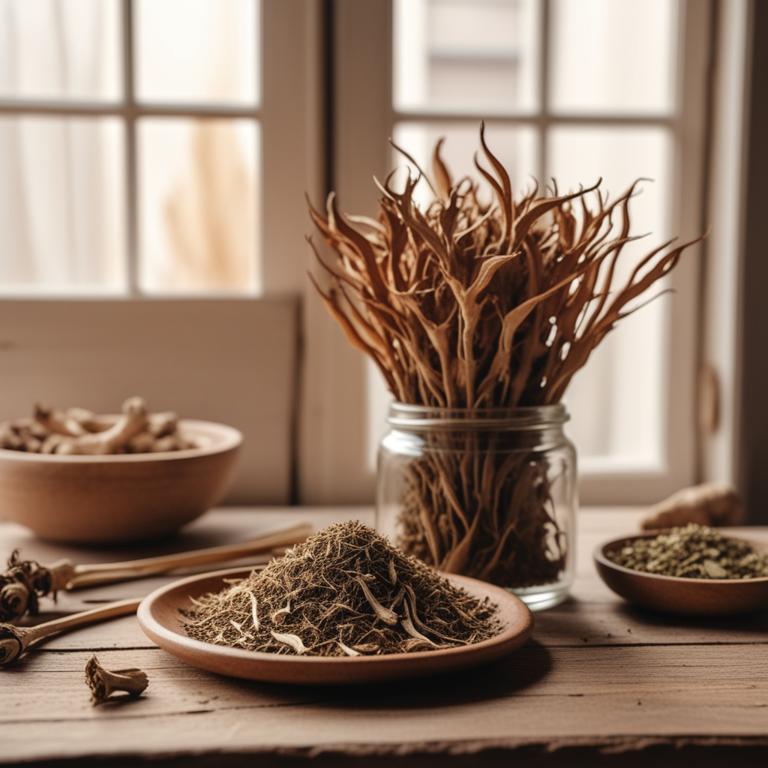
Hoarse Voice: Understanding Causes and Using Medicinal Herbs and Herbal Preparations
